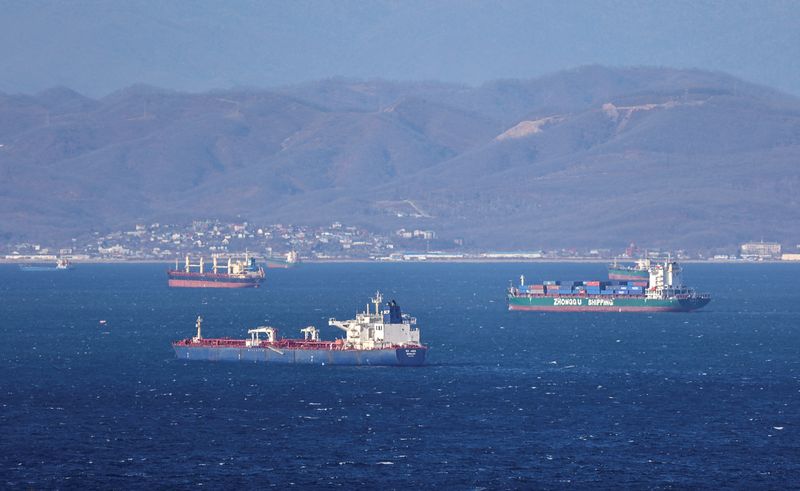MOSCOW (Reuters) - The average price for Russia's Urals oil blend was $57.49 per barrel between Nov. 15 and Dec. 14, Russia's Finance Ministry said late on Thursday, below the Western cap of $60.
That means Western shippers and insurers in countries that have imposed sanctions on Russia over the Ukraine conflict would still be able to provide services to cover shipments of Russian crude without fear of being sanctioned.
The drop from the average Urals price of $71.10 in the previous month was not because the country observed the price cap - which Moscow has said is illegal and threatened to cut oil output in response - but due to a general downward trend in global oil prices over the period.
The Urals price was sharply lower than $80 per barrel for the international Brent benchmark.
According to U.S. Treasury guidance, the cap is placed on free on board (FOB) prices, which do not include the cost of insurance and shipping. That's the price the crude would be sold at if a buyer loaded it directly from a Russian terminal.
The Russian Finance Ministry's Urals price, used as the basis for taxation, is calculated by the Argus pricing agency, which takes into account the blend prices in the Baltic and Black Sea including the cost of insurance and freight (CIF), which is higher than the FOB level.
According to Reuters data, the Urals price for delivery from the Black Sea port of Novorossiisk on a FOB basis is currently $48.69 per barrel.
It is $57.28 on a CIF basis.
Market sources said Urals crude has been sold at deeper discounts this month following a European ban on Russian oil imports, and dominant buyer India has bought barrels at well below the West's $60 price cap.
Since Russia sent its troops into Ukraine in February, India has become the main outlet for seaborne cargoes of Urals crude.
For some deals this month, the price for Urals in Indian ports, including insurance and delivery by ship, has fallen to around minus $12-$15 per barrel versus a monthly average of dated Brent, down from a discount of $5-$8 per barrel in October and $10-$11 in November, according to the market sources.
The spread, or difference, between Urals and dated Brent - the price of physical, light North Sea crude oil, - has risen sharply from early February, when it stood at around minus $1. Now it has reached minus $30.
The European Union, G7 nations and Australia introduced the $60 per barrel price cap on Russian oil, effective from Dec. 5, on top of the EU's embargo on imports of Russian crude by sea and similar pledges by the United States, Canada, Japan and Britain.
Analysts have said the cap will have little immediate impact on the oil revenues that Moscow is currently earning.
Oil and gas exports are forecast to account for 42% of Russia's revenues this year at 11.7 trillion roubles, according to the country's finance ministry, up from 36% or 9.1 trillion roubles in 2021.
